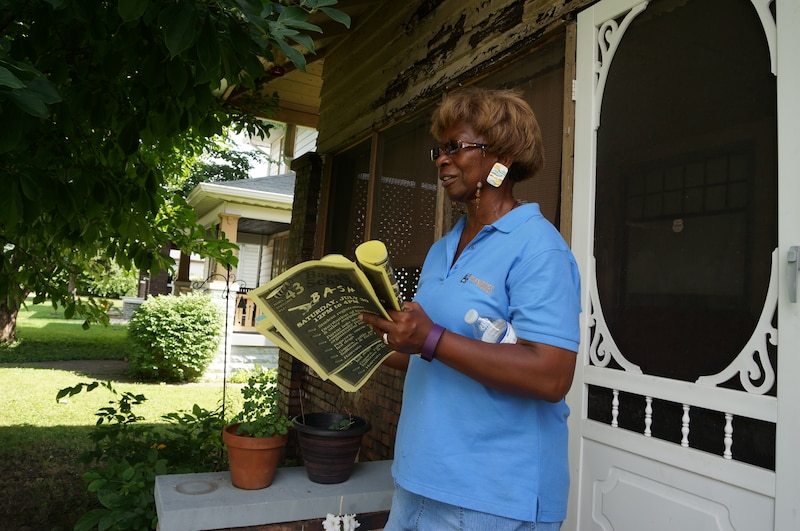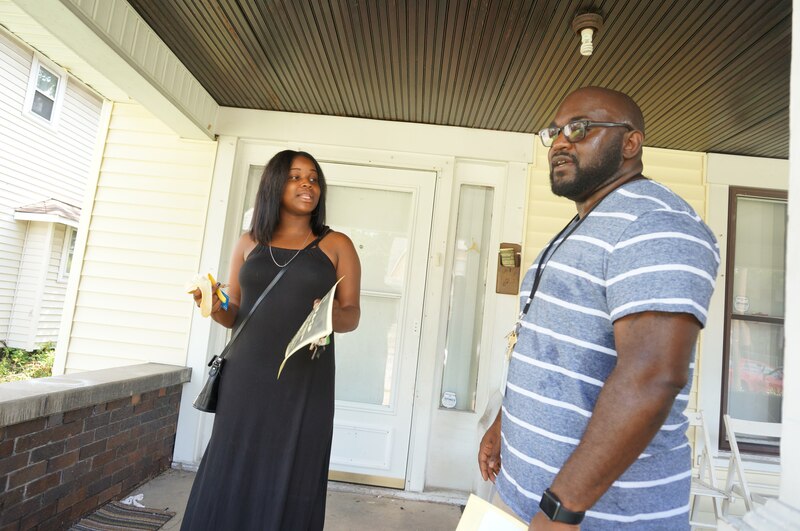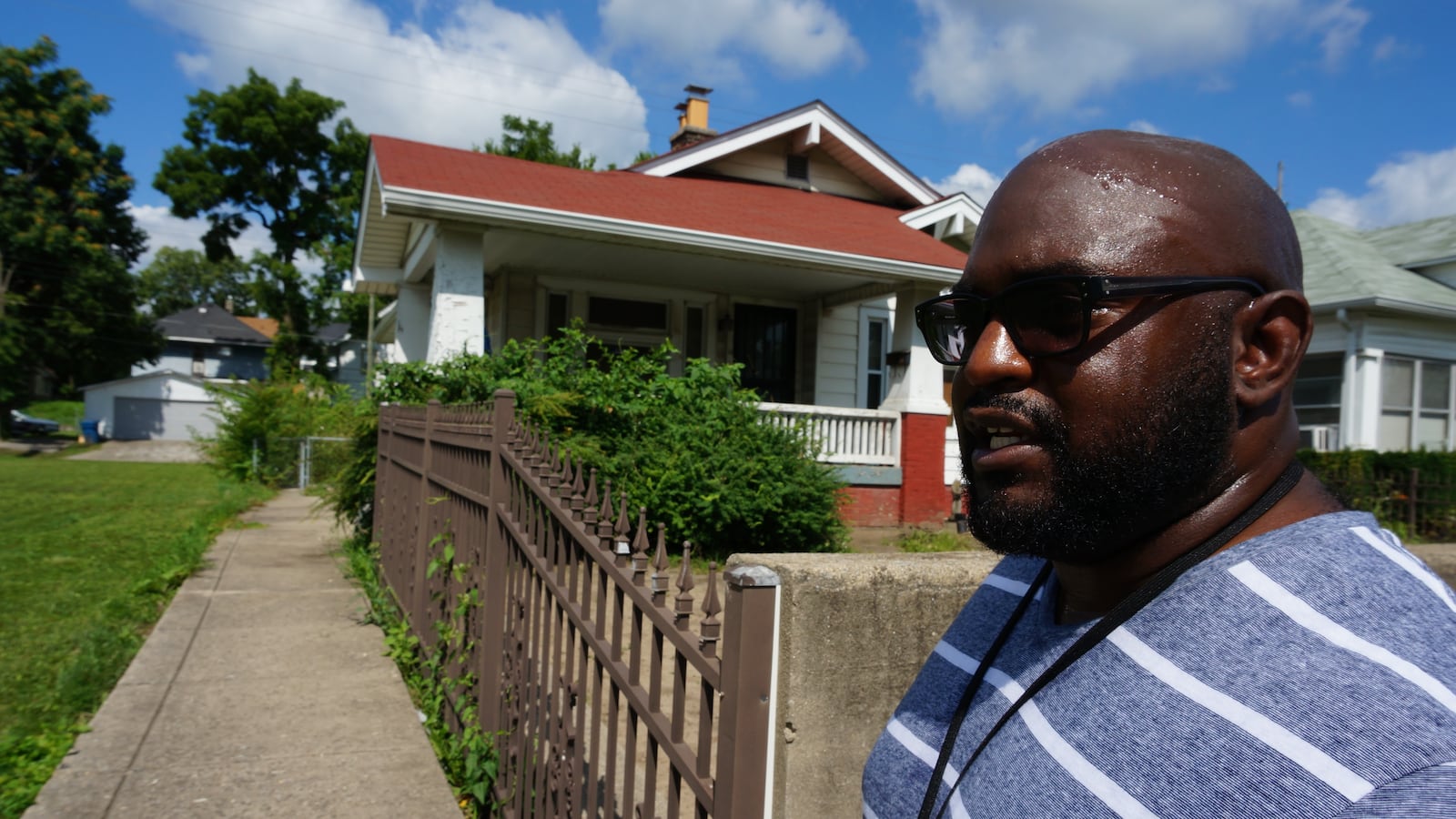Walking the streets around School 43, Bakari Posey passes the corner where his father used to work as a counselor. He points toward Tarkington Park, where he played basketball as a child.
“I grew up in this community,” said Posey, who is the latest principal to take the helm of the troubled school.
School 43 has been plagued by unstable leadership, out of control students and low test scores. The school’s history has made parents wary of yet another principal showing up, promising improvements.
But Posey’s personal connection to the neighborhood is part of his pitch to frustrated parents. It’s a reason to believe that despite all the troubles at the school, he is here to stay.
“I’m putting my all into this because my reputation is on the line,” said Posey, who left an assistant principal position at Tindley Accelerated Schools charter network to join Indianapolis Public Schools.
Both of Posey’s parents are Indianapolis educators, and although he attended Catholic school, he had cousins and childhood playmates who went to School 43.

Last Saturday, on a day when the temperature approached 95 degrees and the glaring sunshine baked heat into the pavement, Posey walked the blocks around the school with Brenda Vance Paschal, a longtime resident and member of neighborhood association. The pair passed out flyers for the school’s start-of-the-year bash Saturday 12 to 4pm — and introduced Posey to the community.
“I think he will bring new life into the community,” Paschal said. “He’s from the area. He’s gonna stay.”
Most of the houses were quiet, but several businesses let Posey post flyers. A barbershop down the street offered his staff a deal on haircuts. A mother whose child is too young for school agreed to hang an invite to the school’s carnival in her apartment building.
Finally, after an hour of visiting businesses and putting flyers in mailboxes, a mother stepped out onto her stoop to meet the new principal.
Syreta Thomas lives just down the street from the school and her two children were enrolled in there until last year when she became so frustrated with the administration that she pulled them out and put them in a charter school.
Thomas said her son has learning disabilities and she felt he wasn’t getting the extra help he needed. But one of her biggest problems with the school was the culture — teachers would tell her son that he’s a “bad kid” and principals came and went, Thomas said.
She had a simple question for Posey: “Are you sticking around?”

Thomas is not the only parent who has left School 43 as it has struggled in recent years.
Part of Posey’s challenge as a principal will be not only winning the trust of parents who are still at the school but also winning back parents like Thomas.
“It’s a new day,” he told Thomas. “I’m working on a mindset shift for my staff.”
Standing on her stoop, Posey listened to her concerns with the school and promised that he’s here to stay, and that the school will be different.
Posey sees the frustration that parents have with the school. Discipline problems have knocked the school off track, and some kids have lost years of learning time.
“It sucks,” Posey said. “That makes me angry and sad at the same time.”
But he is also convinced that the school can turnaround.
As principal, he is going to be rolling out a new school culture strategy called Tribes Learning Community, that is used and liked by other IPS schools. It’s a model that emphasizes respect among teachers and students, one of biggest goals Posey has for the school. Respect needs to start with teachers, so they can model behavior for kids, he said.
If teachers are angry or yell at students, even the kids that are not causing trouble will lose respect for them, he said.
As an assistant principal at Tindley, Posey was charged with enforcing the charter school’s strict discipline policies. But Posey said his own philosophy is more moderate. Elementary school teachers should give students quick redirections if they are getting off task or distracting the class, he said.
For more severe issues, the school has six staffers who can help with discipline issues, including a social worker, a school counselor and four staffers dedicated to helping students with behavior problems, Posey said. Those staffers can help in class if a teacher is struggling, so instead of sending a misbehaving student to the office, the teacher can take the time to go into the hall with the child and discuss the problem.
“Now that kid doesn’t feel admonished, that kid doesn’t feel embarrassed,” Posey said. “They still feel connected to the teacher.”

